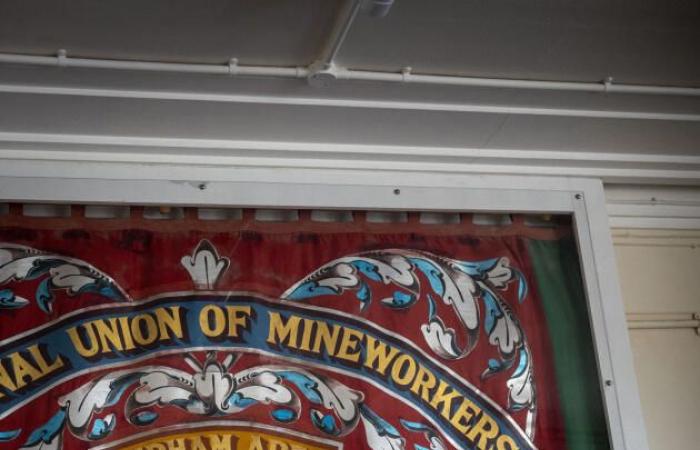The faded paint on the walls, the creaking parquet floors and the musty smell: the vast auditorium of the social welfare center (the social center) of Easington, in County Durham (northeast England), seems straight out of the 1960s, the golden age of this coastal town, before the coal mine next to which it was built (its reason for being, its first employer), closed definitively in 1993, putting 1,500 men out of work.
THE welfare center was the beating heart of the mining towns, where families met for fun or on special occasions. But their collective identity, constructed by the shared experience of danger underground and the pride of belonging to Britain’s working-class elite, has largely faded. Like the other workers who remained in Easington after the disappearance of the necklace (the coal mine), Steve Fergus, 66, the director of the social center, feels abandoned. In mid-June, three weeks before the British general elections on July 4, while Labor is in the lead and the Conservatives, in power for fourteen years, are sinking in the polls, he no longer expects much -thing of politicians.
“Next to the social center, we had tennis, cricket and football fields. Everything is gone. The situation in the city is shocking: there is a lack of public services, social assistance and quality schools. We desperately need jobs,” insists Steve Fergus, who worked in the mine for sixteen years until it closed. He was traumatized by the great strike of 1984 and 1985, in which he participated, having been imprisoned for six months on the grounds that he had hit a police officer. “ I was exonerated but I was still considered a political agitator, the employers didn’t want me. he explains. There were thousands of strikers like him in the country, targets of repression by Margaret Thatcher’s government, which had declared war on the unions.
Read also | Article reserved for our subscribers Margaret Thatcher: 1984-1985, the miners’ strike that changed the United Kingdom
Add to your selections
After this historic social movement, the mines all closed and 200,000 miners lost their jobs between Durham, Yorkshire and Wales. These areas have since not received the attention or funds they need to reconvert and remain among the poorest in the country: child poverty reaches 34% in County Durham, male life expectancy, 77.2 years, is 3 years lower than that of the south-east of the country. During the 2016 referendum, the residents of County Durham voted 58% for Brexit, then a good number of them voted for Boris Johnson and his incredible promises of investment in favor of the North. If the constituency of Easington remained Labor in the 2019 general election, those of Darlington, in the south of the county, or of Bishop Auckland, in the west, have turned Tory.
You have 73.76% of this article left to read. The rest is reserved for subscribers.







